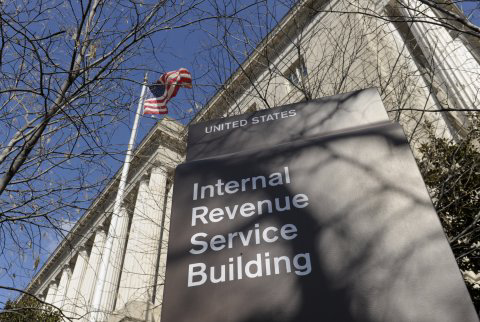Income Tax
Tax Professionals Sue the IRS to End PTIN Fees
A pair of Certified Public Accountants has filed suit against the Internal Revenue Service and the Treasury Department in an effort to stop the government from imposing fees on tax preparers (Preparer Tax Identification Number) and to recover fees, plus interest, that they and other preparers have paid in past years.
Sep. 09, 2014

A pair of Certified Public Accountants has filed suit against the Internal Revenue Service and the Treasury Department in an effort to stop the government from imposing fees on tax preparers (Preparer Tax Identification Number) and to recover fees, plus interest, that they and other preparers have paid in past years.
[Related Coverage: CPAs Challenge the IRS On PTIN Fees.]
The suit seeks class action status which, if granted, would make the case of Adam Steele and Brittany Montrois v. United States of America representative of up to 700,000 tax preparers across the country. This includes the approximately 400,000 CPAs in the U.S., along with Enrolled Agents (EAs) and others who do and do not possess income tax preparation credentials.
Since 2010, the IRS has required PTINs for any individual preparing taxes for others, but no specific training or experience is required to prepare other federal income taxes for other taxpayers. In 2011 and 2012, the IRS tried to enact a program that would have required preparers without a CPA, EA or law degree to obtain a minimum required amount of continuing tax education each year, as well as to pass an exam on tax topics. However, a federal judge later ruled that the IRS did not have the authority to make such regulations, and the program was discarded. The IRS has since tried to enact a voluntary version of that program, but it also faces legal challenges.
In the new class action lawsuit against the IRS, the plaintiffs argue that the PTIN fees are an unlawful fee. IRS Publication 4832, which states that “Currently, any person may prepare a federal tax return for another for a fee,” with the exception of those who have been prohibited through legal action, the plaintiffs state that no superseding legislation has been enacted to permit the IRS or Treasury to issue a regulation that could prohibit any person from preparing returns for other taxpayers.
Prior to 2010, the IRS required tax return preparers to include only an identifying number, which could be their Social Security Number or an IRS-generated PTIN at no cost to the preparer. Under regulations the IRS set forth during 2010, the agency gave implemented the annually-required fees of approximately $63 per preparer. The new fees were further codified, unjustly the plaintiffs say, in the 2011 Final Circular 230 Regulations issued by the IRS, along with newly-mandated testing and education requirements,
The central argument by the tax preparers suing the IRS is that the agency did not have the legal authority to implement those fees. “Without citing any legal authority establishing its ability to bestow (or withhold) the 'ability' to prepare tax returns, the IRS stated that it had such legal authority,” the lawsuit claims.
The plaintiffs also note that substantial parts of the 230 Regulations were struck down by a federal court in 2013 as being unlawful, with the court finding that tax return preparation is not subject to regulation under 31 U.S.C. 330. Therefore, they claim, the requiring of fees and obtaining a PTIN is such a regulation that the IRS does not have the authority to require.
